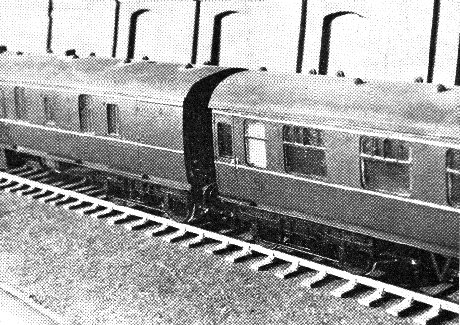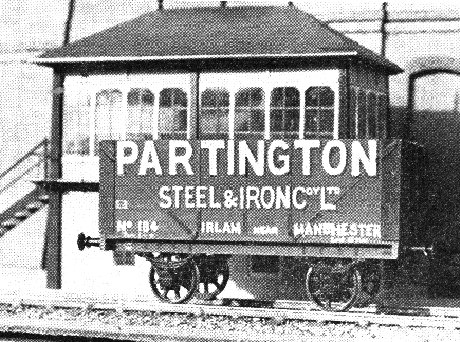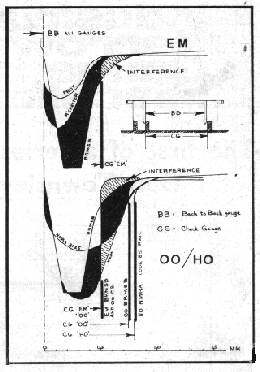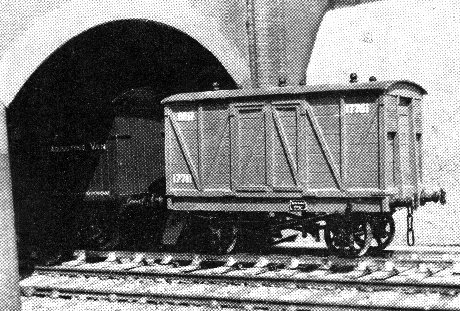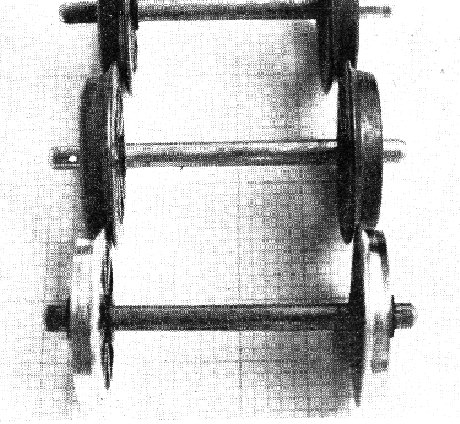| Model Railway News | September 1966 |
PROTOFOUR |
Comprising: J. S. Brook Smith |
| A New Approach to Modelling Standards by A Model Standards Study Group |
|
| Concluded from the August, Model Railway News |
| General Observations It is clear from the Study Groupís investigations that the BRMSB standards lack the basic dimensions to ensure complete reliability, i.e., standard wheel and rail contours designed to work together. Secondly the BRMSB dimensions can be shown to be critical in certain situations, and in the case of TT3, clearly defective. Under these circumstances, the Model Engineering Trade Associationís task is indeed a thankless one. The Protofour Standards, by adopting prototype practice, have eliminated these basic weaknesses and at the same time offer a balanced structure of dimensions and a truly prototypical appearance in the finished model. For those who have no interest in accurate representation of the prototype, the BRMSB systems offer a range of components with which a working model may be assembled. On the other hand, those who are prepared to adopt minimal springing in the vehicles and to attempt to lay reasonably level track, can now produce a reliable and correctly scaled model railway with a completely authentic appearance. With BB spacing plus twice the tyre width, it can be seen that the clearances between axleguards are almost the same as EM Gauge. This feature, combined with gauge widening, means that there are no greater restrictions on minimum radius curves than in the present EM Gauge. The many technical advances on the present systems, and the correct appearance of the models, give reason to believe that Protofour might become the accepted scale railway modelling standard of the future. In the above diagram, four model wheel contours are compared to each other, and to a British Railways wheel drawn to the same comparative scale. |
|
|
